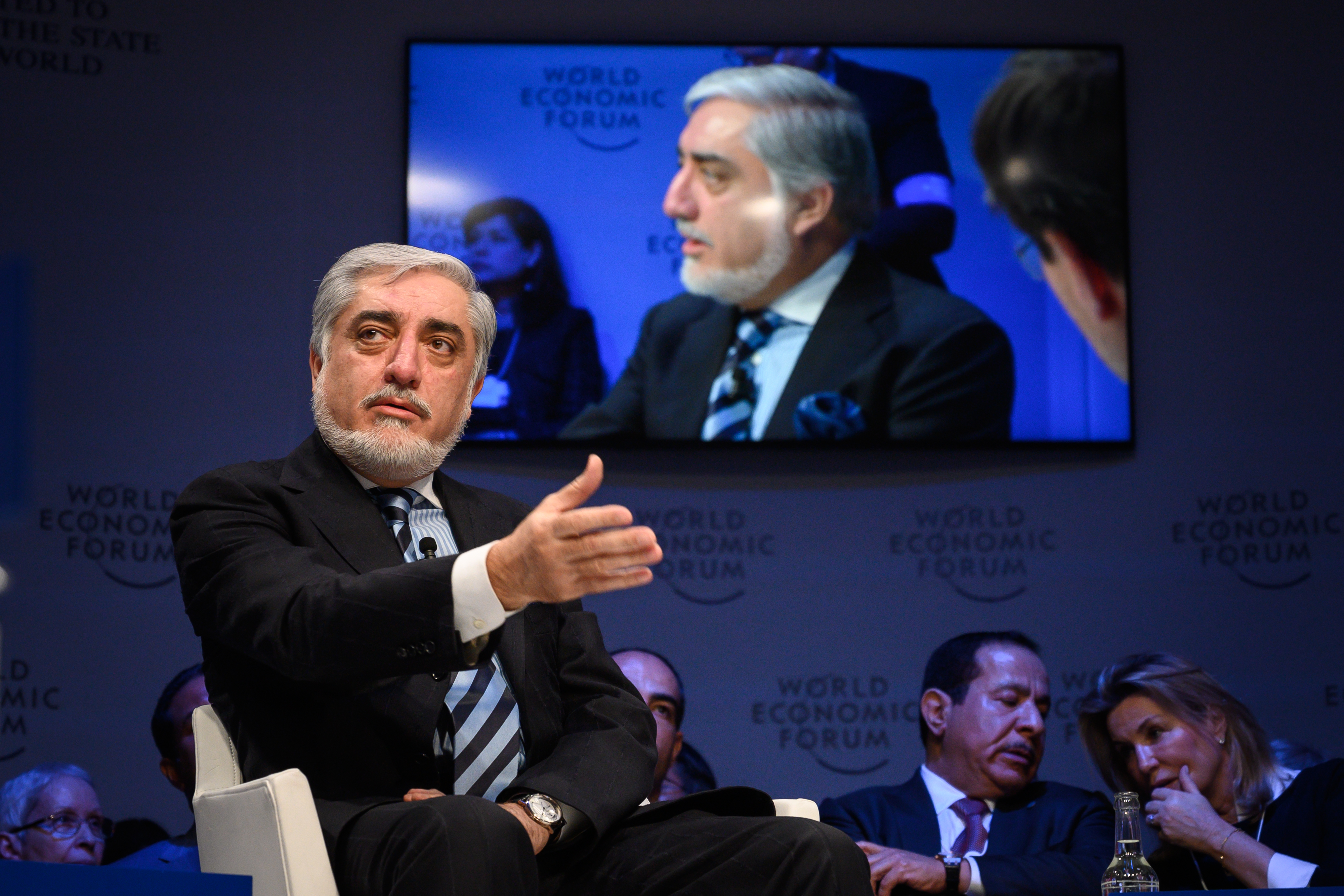Despite attacks, Afghan leader touts investment at Davos
Abdullah Abdullah says investors should look beyond the terrible security situation in Afghanistan and examine the potential of its rich natural resources (Fabrice COFFRINI)
Davos (Switzerland) (AFP) – Afghanistan’s de facto prime minister has possibly the most daunting task of all the leaders attending the annual Davos forum — wooing foreign investors to his shattered country.
Undaunted, Chief Executive Abdullah Abdullah said investors should look beyond the terrible security situation and examine the potential of Afghanistan’s rich natural resources.
“For the business community… of course security is an impediment,” he told AFP in an interview Wednesday on the margins of the World Economic Forum in Switzerland.
“But you cannot wait until security is perfect and then come in and invest,” he said.
“Afghanistan’s riches, natural resources, commodities which are today more precious than gold, these are all opportunities,” he said, highlighting rare earths used in a multitude of electronics.
While the elite Davos forum has plenty of detractors, Abdullah also praised it for being unlike others that are devoted either to business or politics.
“I don’t think there is any other get-together more powerful than Davos, and more inclusive than Davos,” he said.
“This one is a mix of everything, and I try to push our case, the case of our country.”
Abdullah was speaking after Taliban militants on Monday killed 65 people in an attack on an intelligence training facility in Wardak province.
It was the latest high-casualty assault on Afghan forces, who experts say are suffering “unsustainable” losses since NATO withdrew its combat forces in 2014.
– Another challenge: elections –
President Donald Trump meanwhile has ordered the withdrawal of half of the remaining 14,000 US troops in Afghanistan in a push to extricate Washington from the anti-Taliban conflict, launched in 2001 after the September 11 attacks.
At the same time, the United States is conducting a flurry of diplomatic activity aimed at bringing the Taliban to the table for talks.
Washington on Tuesday confirmed ongoing talks in Qatar between its envoy for Afghanistan, Zalmay Khalilzad, and representatives of the Islamist militia.
At the Taliban’s insistence, the dialogue has excluded the Afghan government, and Abdullah said that would ultimately have to change to bring about a lasting settlement.
“(A) peace process cannot take place by proxy,” he said, referring to Washington’s go-between role.
It was Trump’s “prerogative” as US president to decide on troop levels, he added, but stressed: “It is also the reality that we are fighting against common enemies.”
Potentially fuelling instability in Afghanistan is a delayed presidential election now due to take place in July, which will pit Abdullah against President Ashraf Ghani among an array of candidates.
The president was first elected in a fraud-tainted poll in 2014 that was only resolved in a US-brokered power-sharing deal with Abdullah.
The chief executive told AFP that there was “an atmosphere of mutual respect” between himself and Ghani, but stressed there cannot be a repeat of the chaos seen in 2014.
“God forbid if the elections are not satisfactory for the people, if it’s not seen as transparent and fair, that will be a recipe for political instability,” he said.
“It will be tricky. But it is doable, and hopefully we will prove our ability to the people that when it comes to the interests of the people, that’s the utmost for us.”
Disclaimer: This story is published from a syndicated feed. Siliconeer does not assume any liability for the above story. Validity of the above story is for 7 Days from original date of publishing. Content copyright AFP.


